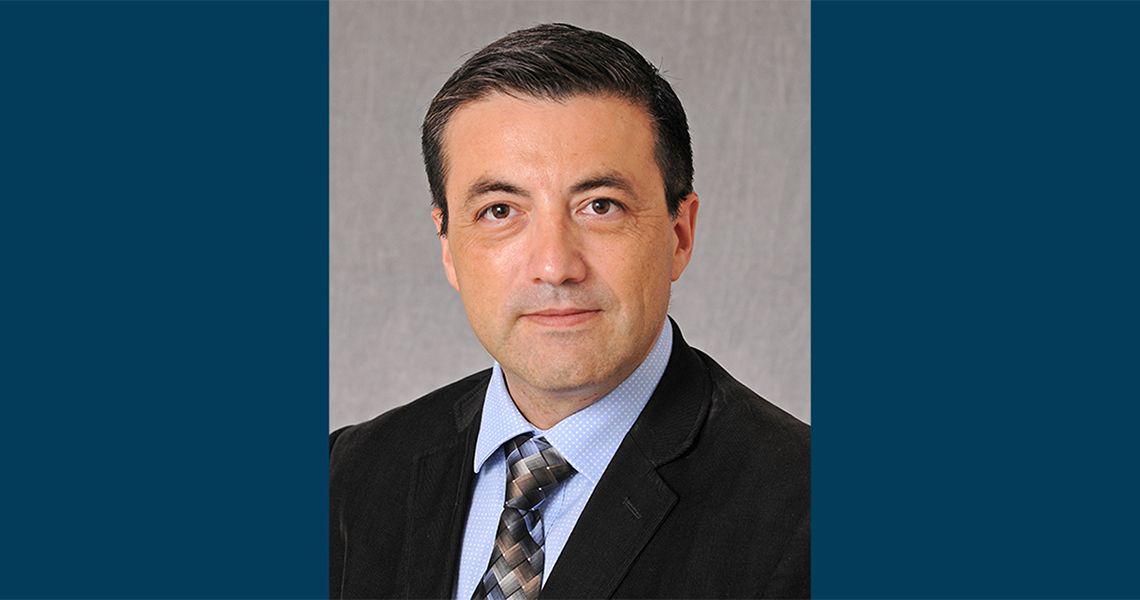WASHINGTON (Aug. 5, 2020) - Genetic modifier HDAC6 was found to control tumor growth and halt metastasis in triple-negative breast cancer in vivo, according to a new study published in the top-tier journal Cancer Research by investigators at the George Washington University (GW) Cancer Center.
Immunotherapy - the use of drugs to stimulate one’s own immune system to recognize and destroy cancer cells - has been wildly successful in melanoma and other cancers. However, it has been less effective in breast cancer.
“There is an urgent medical need to find new ways to potentiate or increase the efficacy of immunotherapy in breast cancer, especially in aggressive and highly metastatic triple-negative breast cancer," said Alejandro Villagra, PhD, member of the Cancer Biology Program at the GW Cancer Center and assistant professor of biochemistry and molecular medicine at the GW School of Medicine and Health Sciences. “Our research lays the groundwork for a clinical trial that could lead to new, life-saving treatment options for breast cancer patients that do not respond to conventional immunotherapies."
Molecularly targeted agents, such as HDAC6 inhibitors, have been widely described in the research literature as cytotoxic - toxic to both cancerous and healthy cells. Villagra and his research team found new non-canonical regulatory properties of these epigenetic drugs, discovering that the inhibition of HDAC6 has a powerful and strong effect on the immune system unrelated to the previously cytotoxic properties attributed to HDAC inhibitors.
This research demonstrates for the first time that HDAC6 inhibitors can both improve response to immunotherapy and diminish the invasiveness of breast cancer, with minimal cytotoxic effects.
“We are excited about the work because, in addition to the potency of immunotherapy, this drug alone is capable of reducing metastasis," said Villagra. “This could have implications beyond breast cancer."
This research was a multidisciplinary effort, made possible by collaborators across the GW Cancer Center, the GW School of Medicine and Health Sciences and the GW School of Engineering and Applied Sciences. The project was funded by grants from the GW School of Medicine and Health Sciences, the National Institutes of Health, and the Melanoma Research Foundation.
“HDAC6 plays a non-canonical role in the regulation of anti-tumor immune responses, dissemination, and invasiveness of breast cancer" was published in Cancer Research, a journal of the American Association for Cancer Research, and is available at https://cancerres.aacrjournals.org/content/early/2020/06/30/0008-5472.CAN-19-3738.
Media: For more information or to schedule an interview, please contact Lisa Anderson at lisama2 [at] gwu [dot] edu (lisama2[at]gwu[dot]edu) or 202-994-3121.
###
About the GW Cancer Center
The George Washington University (GW) Cancer Center is a collaboration of the George Washington University, the GW Hospital and the GW Medical Faculty Associates to expand GW’s efforts in the fight against cancer. The GW Cancer Center also incorporates all existing cancer-related activities at GW, with a vision to create a cancer-free world through groundbreaking research, innovative education and equitable care for all. Learn more about the GW Cancer Center at gwcancercenter.org.




